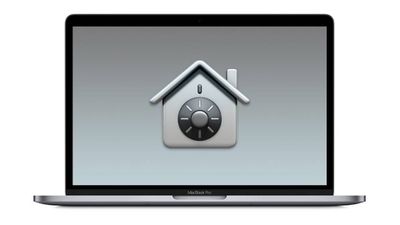Apple Takes Step to Prevent Further Spread of 'Silver Sparrow' Malware on Macs
Over the weekend, we reported on the second known piece of malware compiled to run natively on M1 Macs. Given the name "Silver Sparrow," the malicious package is said to leverage the macOS Installer JavaScript API to execute suspicious commands. After observing the malware for over a week, however, security firm Red Canary did not observe any final payload, so the exact threat to users remains a mystery.

Nonetheless, Apple has since informed MacRumors that it has revoked the certificates of the developer accounts used to sign the packages, preventing additional Macs from being infected. Apple also reiterated that Red Canary found no evidence to suggest the malware has delivered a malicious payload to Macs that have already been infected.
For software downloaded outside of the Mac App Store, Apple said it has "industry-leading" mechanisms in place to protect users by detecting malware and blocking it so it cannot run. Since February 2020, for example, Apple has required all Mac software distributed with a Developer ID outside of the Mac App Store to be submitted to Apple's notary service, an automated system that scans for malicious content and code-signing issues.
Malware targeting M1 Macs has simply been compiled to run natively on the Arm-based architecture of the M1 chip, now that Intel-based Macs are slowly being phased out. For more details about the "Silver Sparrow" malware, read our earlier coverage.
Popular Stories
A new Apple TV is expected to be released later this year, and a handful of new features and changes have been rumored for the device.
Below, we recap what to expect from the next Apple TV, according to rumors.
Rumors
Faster Wi-Fi Support
The next Apple TV will be equipped with Apple's own combined Wi-Fi and Bluetooth chip, according to Bloomberg's Mark Gurman. He said the chip supports ...
Apple will launch its new iPhone 17 series in two months, and the iPhone 17 Pro models are expected to get a new design for the rear casing and the camera area. But more significant changes to the lineup are not expected until next year, when the iPhone 18 models arrive.
If you're thinking of trading in your iPhone for this year's latest, consider the following features rumored to be coming...
Apple's next-generation iPhone 17 Pro and iPhone 17 Pro Max are only two months away, and there are plenty of rumors about the devices.
Below, we recap key changes rumored for the iPhone 17 Pro models.
Latest Rumors
These rumors surfaced in June and July:A redesigned Dynamic Island: It has been rumored that all iPhone 17 models will have a redesigned Dynamic Island interface — it might ...
The long wait for an Apple Watch Ultra 3 is nearly over, and a handful of new features and changes have been rumored for the device.
Below, we recap what to expect from the Apple Watch Ultra 3:Satellite connectivity for sending and receiving text messages when Wi-Fi and cellular coverage is unavailable
5G support, up from LTE on the Apple Watch Ultra 2
Likely a wide-angle OLED display that ...
iPhone 17 Pro and iPhone 17 Pro Max models with displays made by BOE will be sold exclusively in China, according to a new report.
Last week, it emerged that Chinese display manufacturer BOE was aggressively ramping up its OLED production capacity for future iPhone models as part of a plan to recapture a major role in Apple's supply chain.
Now, tech news aggregator Jukan Choi reports...
The iOS 26 public beta release is quickly approaching, while developers have recently gotten their hands on a third round of betas that has seen Apple continue to tweak features, design, and functionality.
We're also continuing to hear rumors about the iPhone 17 lineup that is now just about right around the corner, while Apple's latest big-budget film appears to be taking off, so read on...




















